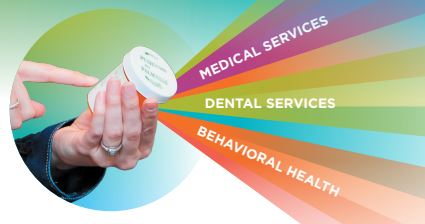State Budget Allocations
The Washington State House of Representatives unanimously approved a $1.33 billion supplemental capital budget for 2024 that includes significant investments in the health of Washington residents including $82.7 million to build behavioral health care facilities and $127 million in funding for affordable housing. Thank you to everyone who called or wrote to state lawmakers! There were significant investments advancing health care access for everyone in this years budget thanks to outreach from Community Health Center staff and supporters.
Increase Investment in Health Coverage for Undocumented Individuals
$28.4 million was allocated by the state legislature for administrative support and expansion of the Medicaid lookalike for uninsured adults at or below 138% of the federal poverty level, regardless of immigration status. This investment demonstrates positive forward momentum, as well as the Legislature’s commitment to coverage for undocumented individuals. However, the total investments in this program ($49.5 million in 2023 and $28.4 million in 2024) are still insufficient to provide coverage for all the individuals the state estimates would be eligible for this program.
Expand School-Based Health Programs and Services
$500 thousand was allocated in the budget to increase funding to expand the Department of Health’s school-based health center program through five grants of $100 thousand each. $2 million was invested in capital funding for eight school-based health capital projects, including six community health center projects.
Continue Capital Investments in Community Dental Clinics
$452 thousand was unvested in capital funding for new and expanded oral health facilities at three community health centers: CHAS Health, Moses Lake Community Health Center, Community Health Center of Snohomish.
340B Progress
New Law Regulating Pharmacy Benefit Managers
WA SB 5213, concerning pharmacy benefit managers (PBMs) was signed into law by Governor Inslee. This bill is a great starting point for addressing issues with PBMs, outsized influence on drug costing and access for our patients by:
- Increasing the ability of the Office of Insurance Commissioner to provide oversight of PBMs
- Protecting pharmacies from negative reimbursements that pay pharmacies less than the cost of a drug after it’s been dispensed to a patient
- Protecting independent and non-profit pharmacies from being paid less than corporate pharmacies
- Prohibiting PBMs from:
- Knowingly misleading pharmacies by requiring more of independent and non-profit pharmacies than they do of corporate pharmacies.
- Reimbursing any pharmacy less than a pharmacy the PBM is affiliated with.
- Retroactively deny payment for a drug. Fees, days allowance, same treatment between mail and in-house. Reduces waste by confirming with the patient they want refills.
“This bill was a great first step towards protecting patients in Washington from the abusive practices of many Pharmacy Benefits Managers,” said UCNW Chief Pharmacy Officer, Lisa Nelson. It should help prevent pharmacy deserts in neighborhoods across the state and will help Unity Care NW’s patients by requiring PBMs to allow us to deliver or mail a prescription and allow patients whose mail in drugs are late or damaged to have replacement drugs covered at a network pharmacy so patients care isn’t interrupted.
The bill contains language about mail order pharmacies requiring affirmative authorization before filling and shipping medication to patients which is important to reduce unnecessary prescription drug spend. Here is a link to a slide deck from National Community Pharmacy Association that is at least a decade old detailing mail-order waste (all the dollar values listed on the slides are much, much higher today): PowerPoint Presentation (ncpa.co)
Sustain 340B Act
In February, the bipartisan Senate 340B Working Group released the SUSTAIN 340B Act Discussion Draft and a Request for Information (RFI) from stakeholders including Community Health Centers. The discussion draft is another step in the right direction to introducing bipartisan legislation that will stabilize the 340B program and protect the health care safety net. Advocacy in coalition with NACHC and other organizations has been instrumental in opening this space for engagement with Congress about the best ways to protect and improve the 340B program. UCNW signed-on in support of NACHC’s RFI response letter to provide feedback to help shape the final legislation.
On the Ballot in November
Initiatives to be aware of in November I-2109: prohibiting taxes on capital gains income and I-2117: repealing the carbon tax credit trading, known as “Cap and Trade.” If passed, either initiative would significantly reduce state revenue from taxes on the sale of property and investments and on carbon polluting businesses. Removing these revenues would limit possible funding for Community Health Centers and our priorities, and could lead to serious negative impacts on our patients.
